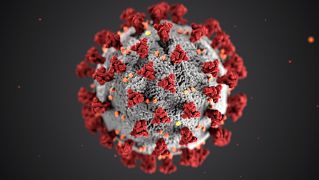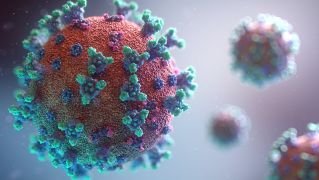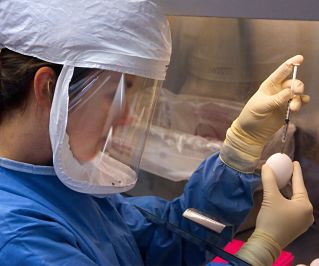Scientific evidence on new coronavirus STRAIN is SOBERING
Let's discuss the new covid 19 strain reported in south England by National Health Services , ENGLAND.
NEW DISCOVERIES
CONTENTS
1. NEW CORONAVIRUS STRAIN?
1.1 What is the new Coronavirus strain?
1.2 Where was it reported and was it worse?
1.3 How did the World react?
2. What WHO said about the new coronavirus strain?
3. Newer type of coronavirus in the UK with more infections, and the severity of the infection is unclear: European CDC
3.1 What is the nature of mutations?
3.2 Lockdown until next year?
4. Will it contribute to the development and response of the vaccine?
4.1 Human response to coronavirus vaccines?
4.2 Should we worry about these changes?
1. NEW CORONAVIRUS STRAIN?


1.1-What is the new coronavirus strain?
New innovations, which UK scientists have dubbed “VUI - 202012/01” include genetic modification of the covid-19 protein used by SARS-CoV-2 coronavirus to cause infection in human beings. According to scientists, these changes, in theory, could lead to the rapid spread of Covid-19 among humans.
According to a BBC report, the exception was first discovered in September in the United Kingdom. In November about a quarter of London cases were linked to the new MUTATION. This change has so far resulted in 1,100 new infections in 60 local council areas, according to reports quoting UK Health Secretary Matt Hancock.
1.2-Where was it reported and is it worse?
Outside of the UK, Italy is one such country with a new strain of the virus. France also spoke of the potential for a new species of coronavirus in the country. The Australian government on Monday reported a form of the deadly coronavirus on two people returning from the UK.
1.3-How did the world react?
As of Monday, the United Kingdom has been shut down throughout Europe after many countries decided to close borders for fear of a new strain of coronavirus. France was the first to close its border with the UK for 48 hours.
Outside France, Germany, Poland, Sweden, Denmark, Finland, Austria, Bulgaria, Romania, Malta, Croatia, Lithuania, Latvia, Estonia, Italy, Netherlands, India, Belgium, Greece, Russia, Hong Kong, Israel, Argentina, Chile, Chile, Colombia, Ecuador, and El Salvador have blocked flights to and from the UK. Saudi Arabia, in particular, has suspended all international flights due to fears of a new type of coronavirus.
2. What WHO said about the new coronavirus strain?
GENEVA: The World Health Organization has warned of a major alarm about a new, highly contagious coronavirus virus that has emerged in Britain, saying that this was a normal part of the outbreak.
WHO officials have even made public the discovery of the new species, which has caused many frightened countries to set travel restrictions in Britain and South Africa, saying new tools to track the virus is working.
"We need to find a balance. It's very important to be clear, it's very important to tell the public the right way, but it's also important to know that this is a normal part of the virus outbreak," WHO emergency services chief Mike Ryan told an online forum.
"Being able to track the virus closely, this carefully, this scientifically in real-time is a real positive development for global public health, and countries that do this kind of monitoring should be commended."
Citing data from Britain, WHO officials said they had no evidence that the alternative made people sick or even more deadly than the existing forms of COVID-19, even though they seemed to spread easily.
Countries that place restrictions on tourism are acting out of extreme caution while assessing risk, "Ryan said, adding:" That's wise. But it's also important for everyone to see that this is happening, this difference is happening. "
WHO officials said that mutations in the coronavirus gene have so far been much slower than the flu and that new UK mutants remain less contagious than other diseases such as warts.
They argued that vaccines designed to combat COVID-19 should be adapted to new varieties, although checks were being made to ensure that this was possible.
"So far, although we have seen many mutations, many genetic mutations, there has been no significant impact on the detection of the virus in any of the current drugs, drugs or vaccines and one hopes it will continue to be so," Chief Scientist Soumya Swaminathan told the forum.
The WHO said it expected to receive more information within days or weeks of the potential impact of the highly contagious coronavirus.
3. A newer type of coronavirus in the UK with more infections and the severity of the infection is unclear: European CDC
The number of repetitions (R-naught) of a new type of novel coronavirus - with an increase in the number of cases in parts of the United Kingdom - is 0.4 times higher than the first type. The new strain of SARS-CoV-2 is 70 percent contagious, the European Center for Disease Prevention and Control (ECDC) reported on December 21, 2020.
The reproductive rate of the virus determines how many people can get the virus from one infected person.
According to the ECDC:
"Preliminary modeling results released by the United Kingdom on December 19 suggest that the variance may be significantly higher than the previously reported variance, with an average reproductive rate (R) of 0.4 or more with an increased imaging rate of up to 70 percent."
The ECDC, however, said it was unclear the magnitude of the disease caused by the transmission of the virus. "There is no indication of an increase in visual acuity-related infections, but the study challenges the fact that most cases are reported in people under the age of 60, who are less likely to have severe symptoms," the statement said.
More than 50 percent of new cases in the southeastern part of England - where significant strides have been seen in the last few cases - are considered in this new version.
The ECDC added that there are indications of the presence of the most common cases in the UK; a few cases have been found in other countries as well.
A series of samples were collected in Denmark and the other came from Australia in November. This means that the type of difficulty has spread to other countries and its magnitude is still unknown.


3.1-What is the nature of mutations?
Many mutations of this type have occurred in spike proteins (those that emerge from the surface of the virus and bind to the tissues of the human body), according to the ECDC.
The unusually high number of mutant protein mutations and mutations in other genomic genetic variants suggests that the variant may not be the product of a gradual collection of mutations in the UK alone.
The ECDC, meanwhile, has ruled that the ongoing vaccination program created any pressure on the viral ecosystem that led to the emergence of a new strain. He added that there was no information available so far as to say that the new variants would contribute to the development of the vaccine.
But can low-dose vaccines contain antibodies against new mutations? The ECDC said there was not much information available to answer the question.
He also added that it is important to remember that genetic mutations occur in spike proteins and that most immunosuppressive vaccines are based on spike protein sequences. Therefore, it is important to know the antigenic properties of the new type.
Research in this regard is ongoing and results are expected within three weeks.
3.2-Lockdown until next year?
Meanwhile, UK Prime Minister Boris Johnson on December 20, 2020, announced strict restrictions, known as Tier 4, in some parts of England. People in Tier 4 areas will not be able to meet anyone outside their homes for Christmas; those all over the world can only meet on Christmas Day itself.
4. Will it contribute to the development and response of the vaccine?
UK officials said some laboratory work was being done as a priority in understanding this. "Currently there is no evidence that the Pfizer vaccine would not protect people from this new species," said PHE.


